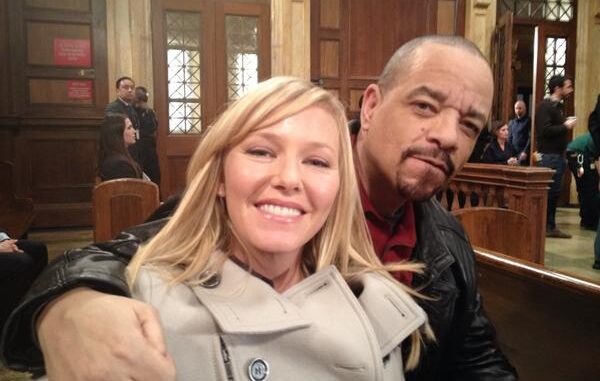
Law and Order SUV Can’t Afford Both Ice-T and Kelli Giddish md07: The Grim Calculus of Comfort
There are few television shows as ingrained in the American psyche as Law & Order: SVU. For nearly a quarter-century, it has been a brutal, comforting constant, a procedural heartbeat thrumming through our living rooms. Its longevity is a testament not just to its compelling, often harrowing narratives, but to its ensemble cast – a rotating, yet strangely stable, family of detectives fighting the good fight. But beneath the veneer of weekly justice lies the cold, hard reality of network television economics. The hypothetical scenario posed by “Law and Order SUV Can’t Afford Both Ice-T and Kelli Giddish md07” isn’t just a grim thought experiment; it’s a stark illustration of how the relentless calculus of budget lines and market value can threaten to dismantle the very fabric of beloved institutions, forcing an impossible choice between two different, yet equally vital, forms of narrative gold. The “md07” here isn’t just a production code; it’s the specific budgetary line item, the surgical incision point where a piece of the show’s soul might be excised.
To imagine SVU without Ice-T’s Fin Tutuola is to imagine a ship without its ballast. For over two decades, Fin has been the show’s laconic anchor, the street-smart counterpoint to the more emotionally volatile detectives. He’s the weary observer, the wry commentator, the man who has seen it all and still manages to crack a dark joke. His presence is a bridge to the show’s grittier, earlier days, a steady beat that reminds viewers of the world outside the precinct walls. Fin’s value isn’t just in his lines; it’s in his very being. He represents consistency, the comfortable inevitability of a character who has transcended mere acting to become a cultural touchstone. He brings a gravitas and an authenticity that is earned through sheer endurance. To lose Fin would be to lose a piece of SVU‘s DNA, a silent sentinel whose presence often spoke louder than words. It would be a loss of the show’s enduring cool, its historical grounding, and the unique brand of cynical optimism that only a veteran like him can embody.
Conversely, to imagine SVU without Kelli Giddish’s Amanda Rollins is to rip out a significant part of its evolving heart. Rollins arrived as a troubled, impulsive detective, burdened by a fractured past and a volatile family. Over the years, we’ve watched her grow, confront her demons, embrace motherhood, and even pursue an academic path. Her character arc is one of the most compelling and organic developments in recent SVU history, offering a modern, nuanced portrayal of a woman navigating trauma, ambition, and personal redemption. Rollins isn’t just a detective; she’s a testament to resilience, a character who allows the show to explore contemporary issues of mental health, addiction recovery, and the complexities of female identity in a demanding profession. Her intellectual curiosity, paired with her street instincts, provides a different kind of balance to the squad, a bridge between the gritty reality and the analytical pursuit of justice. To lose Rollins would be to sacrifice ongoing narrative potential, a vibrant, multi-layered character whose journey is far from over, and whose evolution mirrors the show’s own attempt to stay relevant and dynamic.
The grim hypothetical of “Can’t Afford Both” stems from the harsh realities of long-running television. As shows age, actors’ salaries typically rise, production costs inflate, and network budgets tighten. The “md07” becomes the cold, anonymous hand on the scale, weighing the tangible costs against the intangible value of character and audience connection. It’s a purely economic decision, stripped of sentiment, where the financial ledger trumps narrative integrity. Does the network prioritize the veteran presence, the proven loyalty, the iconic status of an Ice-T, whose foundational role is almost impossible to replicate? Or do they opt for the more recent, but deeply embedded, Kelli Giddish, whose ongoing character development offers fresh storytelling avenues and appeals to a slightly different demographic?
This isn’t just about the actors themselves; it’s about what their presence signifies for the show. Ice-T represents the unwavering core, the institutional memory. Giddish represents the adaptive spirit, the capacity for growth and change. To be forced to choose one over the other isn’t just a casting decision; it’s an existential crisis for the series, a moment where the business of entertainment overshadows the art of storytelling. It’s a decision that echoes through the devoted fan base, who invest emotionally in these characters, only to be reminded that for all the powerful narratives of justice, the show itself is subject to the arbitrary, often brutal, justice of the bottom line.
In the end, the “Law and Order SUV Can’t Afford Both Ice-T and Kelli Giddish md07” scenario is a poignant metaphor for the fragility of comfort and consistency in the corporate landscape. It highlights the often-unseen struggles behind the seamless weekly episodes, where beloved characters are not immune to the ledger sheet. It’s a reminder that even the most enduring television institutions, those that offer solace and a sense of order in a chaotic world, are ultimately beholden to the same cold, calculating forces that govern any other business, and that sometimes, for all its grit and glory, SVU itself must face a form of grim justice from within.
